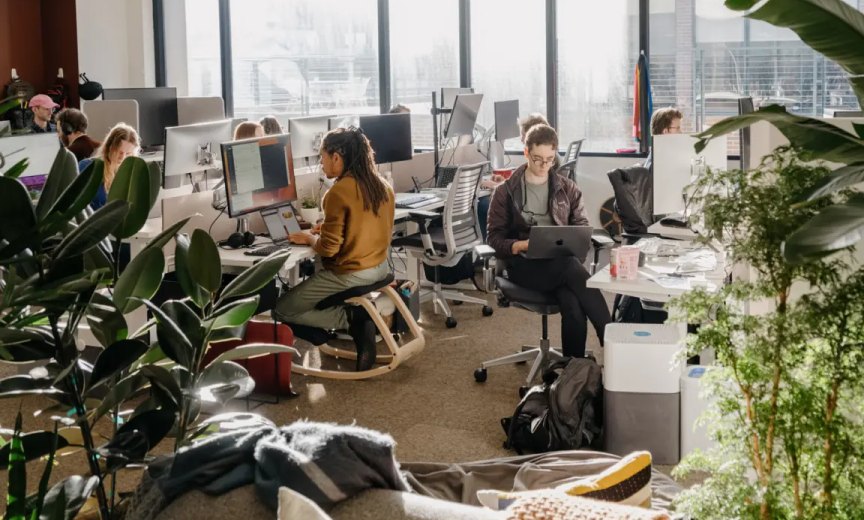Google-backed AI startup Anthropic releases Claude 3, its most powerful AI chatbot models yet

Anthropic on Monday unveiled Claude 3, a new suite of artificial intelligence models the company claimed to be its fastest and most robust to date. The trio of AI tools is named Claude 3 Opus, Sonnet, and Haiku.
According to Anthropic, the most formidable among the new models, Claude 3 Opus, has outshone industry benchmarks, surpassing both OpenAI’s GPT-4 and Google’s Gemini Ultra in crucial tests such as undergraduate-level knowledge, graduate-level reasoning, and basic mathematics.
The new AI models mark a major milestone for Anthropic, allowing users to analyze and receive answers based on various types of unstructured data, including photos, charts, and documents.
Sonnet and Haiku, the more compact and budget-friendly models compared to Opus, have made their global debut in 159 countries starting this Monday. Anthropic indicated that Haiku will be available shortly, without specifying a precise timeline. The company remained tight-lipped about the training duration and cost of Claude 3 but acknowledged collaborative efforts with companies like Airtable and Asana in A/B testing the models.
Just a year ago, Anthropic, a promising generative AI startup founded by former OpenAI research executives, had completed Series A and B funding rounds. However, it had only introduced the initial version of its chatbot, lacking consumer access and significant attention. In December, the Google-backed AI startup Anthropic sought to raise $750 million in a new funding round led by Menlo Ventures.
Fast forward twelve months, and Anthropic has transformed into one of the most sought-after AI startups, securing backing from industry giants like Google, Salesforce, and Amazon. With a product directly competing with ChatGPT in both enterprise and consumer domains, the startup successfully closed five funding deals over the past year, accumulating a total of approximately $7.3 billion.
The generative AI sector witnessed an explosive surge over the last year, with a record-breaking $29.1 billion invested across nearly 700 deals in 2023, reflecting a staggering 260% increase in deal value from the previous year, as reported by PitchBook. Despite concerns raised by academics and ethicists regarding bias propagation, generative AI has penetrated various sectors, including education, online travel, healthcare, online advertising, and more.
Anthropic Co-founder Daniela Amodei disclosed that a team of 60 to 80 individuals worked on the core AI model, while 120 to 150 focused on its technical aspects. Compared to the last iteration, the latest AI model saw a direct team of 30 to 35 people, supported by a total of about 150 individuals. Anthropic emphasized that Claude 3 can now summarize up to approximately 200,000 words, a significant leap from its predecessor’s capacity of 75,000 words.
Amodei highlighted Claude 3’s enhanced risk understanding in responses compared to its predecessor, Claude 2, which sometimes erred on the side of over-refusal. The latest model displays a more nuanced comprehension of prompts, according to Anthropic.
In an interview with CNBC, Amodei said: “In our quest to have a highly harmless model, Claude 2 would sometimes over-refuse. When somebody would kind of bump up against some of the spicier topics or the trust and safety guardrails, sometimes Claude 2 would trend a little bit conservative in responding to those questions.”
Multimodality, introducing features like photo and video capabilities to generative AI, has emerged as a pivotal use case in the industry. Anthropic’s Claude 3 aligns with this trend, allowing users to upload images and documents for analysis, distinguishing itself from competitors.
Despite the advancements, Anthropic acknowledged that no model is flawless, emphasizing the ongoing efforts to strike a balance between capability and safety. As the AI landscape continues to evolve, the integration of more complex models and multimodality raises potential risks, as seen with Google’s recent decision to take its AI image generator offline due to historical inaccuracies and questionable responses.
In addressing these concerns, Amodei assured that Anthropic has diligently worked to make their models as capable and safe as possible, recognizing that occasional discrepancies may still occur.
Anthropic was founded in 2021 by OpenAI’s former VP of research Dario Amodei (CEO), Jack Clark, Sam McCandlish, and Tom Brown. Sensing that generative artificial intelligence is going to have a major impact on the world, Dario struck out with his sister Daniela to create “large-scale AI systems that are steerable, interpretable, and robust.” Before co-founding Anthropic, Daniela Amodei was OpenAI’s vice president of safety and policy.
The startup came into the spotlight following the popularity of ChatGPT. The startup is recognized as one of the primary competitors to OpenAI. The potential deal for Anthropic, known for the Claude chatbot, underscores the continued strong interest of venture capital investors in major AI transactions, especially when the startups in question are generating substantial revenue.
The popularity of OpenAI ChatGPT has now led to a boom in the adoption of generative artificial intelligence (AI) and big tech companies and small startups alike are in a race to integrate it into their products. Since its launch in November, ChatGPT has impressed many experts with its writing ability, software coding, proficiency in handling complex tasks, and its ease of use.

